We’ll be honest with you, we’re only just coming to terms with the fact we're in autumn and the nights are drawing in – the summer months have certainly disappeared in the blink of an eye!
If you’re anything like our horse insurance team, you’re already thinking ahead – instant memories flashback of the mud, rain and dreaded snow!
But we’re remaining positive here at SEIB HQ, and to stay ahead of the game we’ve gathered a few of our top tips to help you get prepared for the winter months.
There’s nothing worse than heading into winter underprepared, knowing full well you’ll be frustrated you didn’t get organised when you had the chance.
Take a look at our top tips below: 👇
1. Air out those stables
We know this is probably one of the worst jobs going, but it has to be done before the wet weather arrives. If you have rubber matting that isn’t fixed into your stable, we suggest removing the matting, getting out the disinfectant and giving the rubber mats a good old hosing down. Top tip - use carpet powder such as Neutradol to help soak up urine that has leaked from the matts through to the stable floor.

2. Tidy hay / straw barn
Sweep out any old hay and straw to make as much room as possible for new deliveries. Don’t forget about giving your feed room a sweep and tidy up also.
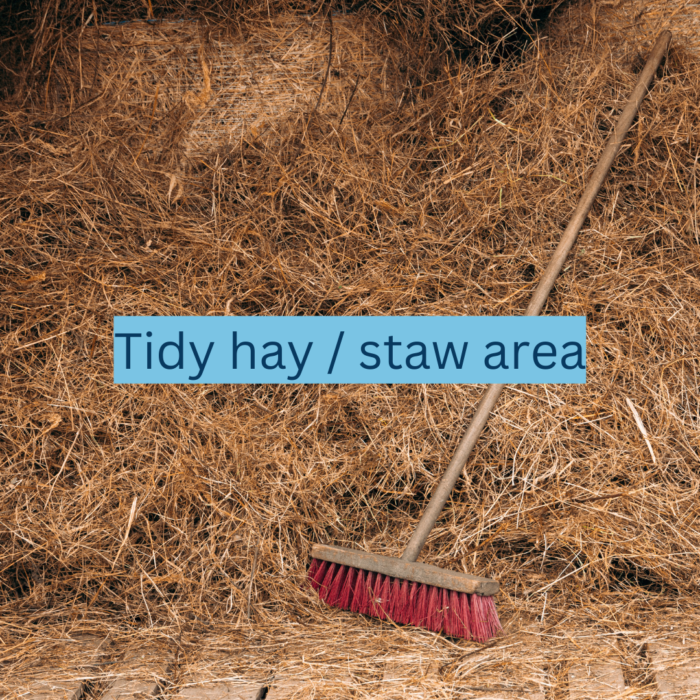
3. Field maintenance
Inspect your field for any damaged fence posts / gates and areas which could cause injury or where your horse could escape through. Now we’ve had a little more rain, replacing wooden fence posts will be easier.
Find out more about field maintenance here.
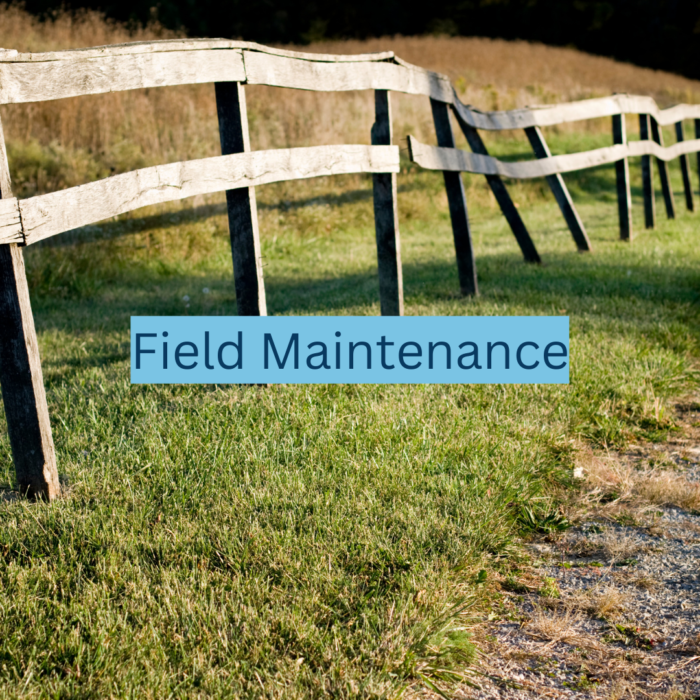
4. Purchase feed buckets and extra hay nets
Who wants to spend cold winter evenings filling up numerous hay nets? We know we certainly don’t! To make your life easier, why not purchase some feed buckets and extra hay nets (you can get these second-hand from Facebook marketplace to save the pennies). Fill hay nets and feed buckets at the weekend for the week ahead to save you time during the evenings after work – you’ll thank yourself later!
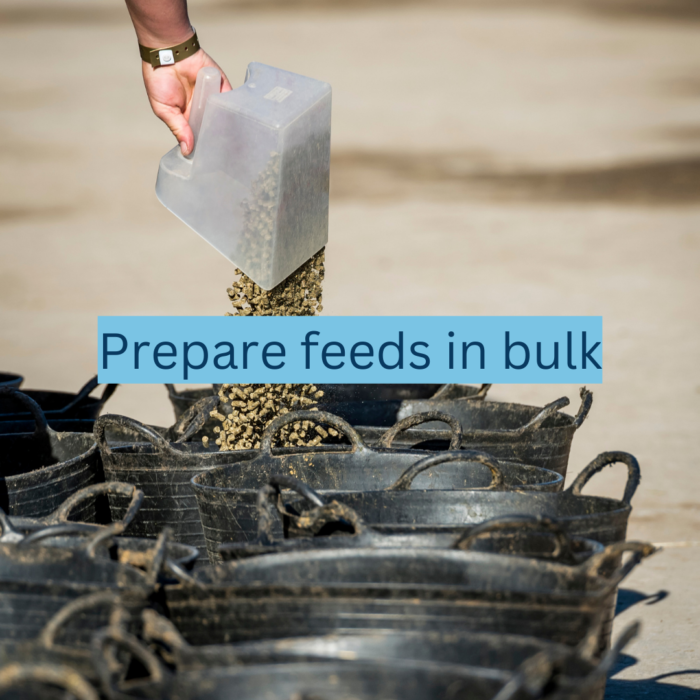
5. Protect your tack from the winter weather
There’s nothing worse than riding with dirty tack. Ahead of the colder months, protect and treat your tack by spending some time giving it a once over with tack cleaner and conditioner.
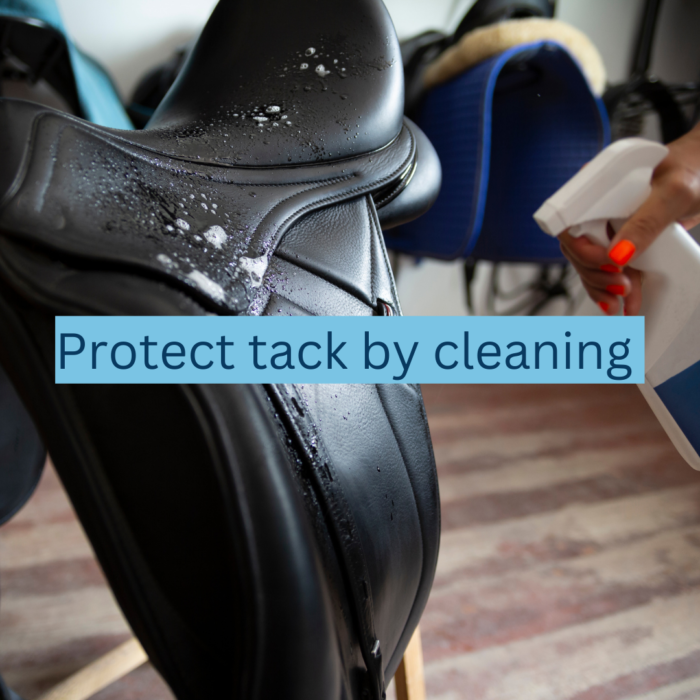
6. Rug / numnah cleaning
Gather all of your winter rugs and numnahs and sort them into various piles for washing and repairs. Store summer rugs in vacuum packed bags ready for the next year and tidy away. Top tip – speak to other liveries to arrange a joint rug cleaning service as this often works out to be cheaper when more rugs are added. You can find out more information about when to start rugging your horse here.
7. Hold back on the hosing
If your horse comes in every night, resist the temptation to keep hosing those muddy legs off. If mud fever sets in, it will become a very long and miserable winter for you both. Constantly washing and drying wet, muddy legs can make them very sensitive and prone to mud fever. It might seem counterintuitive, but towel drying or leaving to dry naturally may prevent mud fever. Applying sulphur powder and pig oil can also work wonders, but there are plenty of other options on the market too.
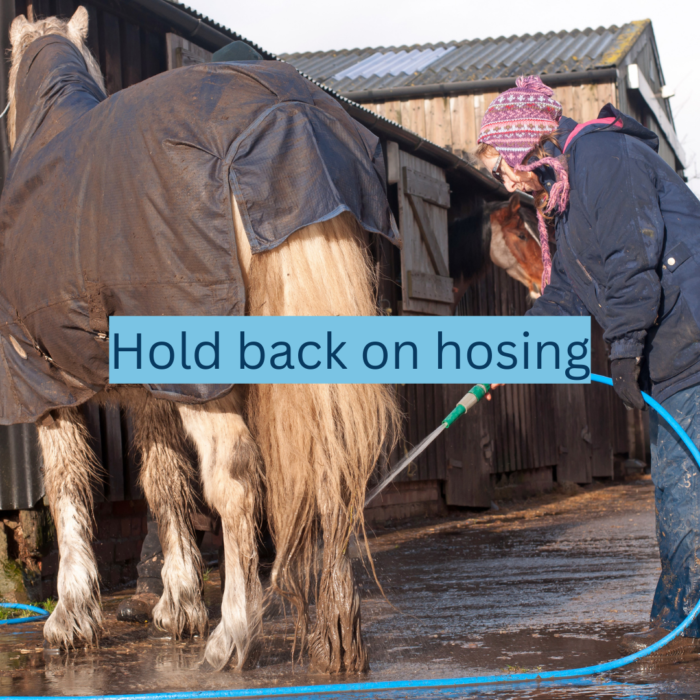
8. Bulk order bedding and feed
If you can, and have the room, try to bulk order bedding and feed. This will save you various journeys to your local saddlery during the cold winter months and pre-empts the use of extra bedding when horses are stabled for longer periods of time.
9. Check water pipes
Check water pipes are working correctly and sufficiently lagged to avoid bursting after a freeze. We also suggest insulating pipes with foam insulation to help protect them from the cold weather. If your pipes do tend to freeze no matter what you do, a handy tip is to fill some water containers up at home and take these to the yard with you in the morning.
10. Invest in some thermals
Make sure to look after yourself. Invest in some thermal gloves, socks and of course the trusted bobble hat! Waterproof trousers are also great to wear over jodhpurs to help keep mud away and keep your legs toasty!
We hope some of our top tips will come in handy as we all prepare for the colder months ahead.
About SEIB
SEIB have been arranging insurance for horses for over 50 years. This experience allows us to tailor policies to suit your circumstances and ensure that you and your horses are covered should the worst happen.
